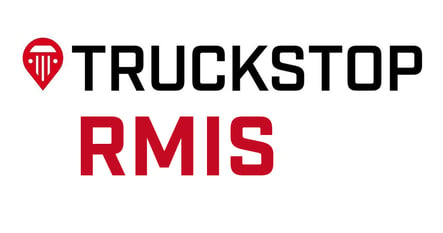RMIS - Carrier Monitoring
This article explains how to use the RMIS API for carrier monitoring and onboarding. It covers client types (CRS + and Monitoring Only), key settings, API workflows, and support contacts.

Purpose
The RMIS Transportation API allows RMIS customers to fetch information about a carrier they wish to monitor on a simple and real-time basis. RMIS gathers information from multiple sources, including DOT / FMCSA information, RMIS proprietary insurance data, and optionally information from a carrier’s online registration data, and returns the data. If a Carrier Master does not exist, we will use the provided information to add the carrier to the database and allow for the Broker Carrier to be created.
RMIS supports two basic types of clients, those using the CRS+ Carrier Onboarding Service and the Monitoring Only service. CRS+ is a system that allows clients to perform a complete online onboarding for their carriers completely online using the RMIS system.
RMIS Carrier Monitoring - Certified/Non-Certified Status
Overview
Tai TMS integrates with RMIS to automatically monitor carrier compliance and certification status. In addition to existing insurance, safety and authority monitoring, Tai supports RMIS Certified/Non-Certified status.
How Certified/Non-Certified Status Works
RMIS provides a property called IsCertified for each carrier:
-
If IsCertified = True, the carrier has passed RMIS’s broker-specific rule assessment and is considered Certified.
-
If IsCertified = False, the carrier has failed the rule assessment and is considered Non-Certified.
-
If IsCertified is not present, the status is unknown and will default to your configured preferences.
Tai will automatically update carrier statuses in the system based on this information:
|
RMIS IsCertified Value |
Tai Broker Carrier Status |
|---|---|
|
True |
Enabled |
|
False |
Blocked |
|
Not Present |
No automatic change |
Additional Carrier Blocking Based on RMIS Response
If RMIS returns the following error:
<Error>Carrier does not belong to this client</Error>
This indicates the carrier is not properly associated with your RMIS account and has been disabled at the broker level. In Tai, this carrier’s status will be set to Disabled, preventing its use.
RMIS captures the following Onboarding information:
- Profile Data
- Insurance Agent
- Diversity Information
- Agreement Signature
- If Hazmat Supported and Certification Details
- W9
- Tax ID
- Payment Terms
- Operating States
- The expanded carrier API can support syncing operating states for carriers. To activate this option, you must add an Integration Source Setting: OperatingStates = True.
If set to True, the TMS will add the respective state to the LSP Carrier Preferred Regions.
RMIS does not indicate whether it’s inbound/outbound, so we will set them to “Both.”
- The expanded carrier API can support syncing operating states for carriers. To activate this option, you must add an Integration Source Setting: OperatingStates = True.
- Factoring Companies
- During the integration's onboarding process, the Tai team will provide a CSV file containing crucial information about the Factoring Companies, including their IDs within the TMS. The RMIS team will subsequently map these IDs on their platform as the initial safeguard against any potential duplication of factoring companies.
- Furthermore, additional checks will be performed to enhance data integrity and minimize duplication risks, including verification of the physical or bill-to-zip codes and cross-referencing the company names.
- To exclude Factoring Companies from the RMIS integration, set the "AddOrUpdateFactoring" source setting to "false."
Monitoring Information:
- Insurance and DOT Data
An RMIS Monitoring Only client has RMIS monitor-only insurance and DOT information but not the onboarding data, which is unique to the CRS+ client.
The same RMIS Transportation API supports both monitoring and CRS+ accounts.
How to get Support
You can get support by contacting your RMIS salesperson or customer service at 800-400-4924. You may request support by email from help@registrymonitoring.com.
Integration Source Setup
If it's the first time the customer is setting up an account with RMIS, they will have to go through an implementation process with them, and RMIS will only share credentials after that is done. If the account is already set up, you can send an email to tsi@truckstop.com requesting the information below:
- clientID: Client ID assigned by RMIS
- User Name
- clientPassword: API Password assigned to each customer
- Password
- Owner Organization: Accounting Level Org where carriers are being processed at.
Workflow
Every 4 minutes, it will hit RMIS and hit the Expanded Carrier API, the Delta API, and the Document API.
- Expanded Carrier API: The Expanded Carrier API accepts an identifier for a carrier attached to the client making the request, and it returns the Expanded Carrier XML for that carrier.
- Delta API: The Delta API provides functionality for clients to fetch from a queue of carriers that have undergone information or status updates. This is intended to be used in conjunction with the Expanded Carrier API to determine when to request XML for a carrier.
- Document API: This allows clients to request carrier documents, including permits, W9s, and others. It returns the document as a byte stream-style string to be decoded for the client's use.
- When a carrier is detached in RMIS, this does not carry over into our TMS system. We will no longer receive updates on the carrier via RMIS, but they will stay attached/enabled in TAI until they are detached here.
If Carriers are immediately needed, you can manually add the Carrier, which will later get updated with the Delta API.
- Add the Carrier under your LSP Carrier List and ensure the correct Shipment Types are selected.
- Delta will update the Carrier during the Delta Portion of the 30 min workflow.
Troubleshooting
Support can access the API Activity Logs to review requests and responses.
IntegrationSourceType: RMIS
Contact
Support - tsi@truckstop.com